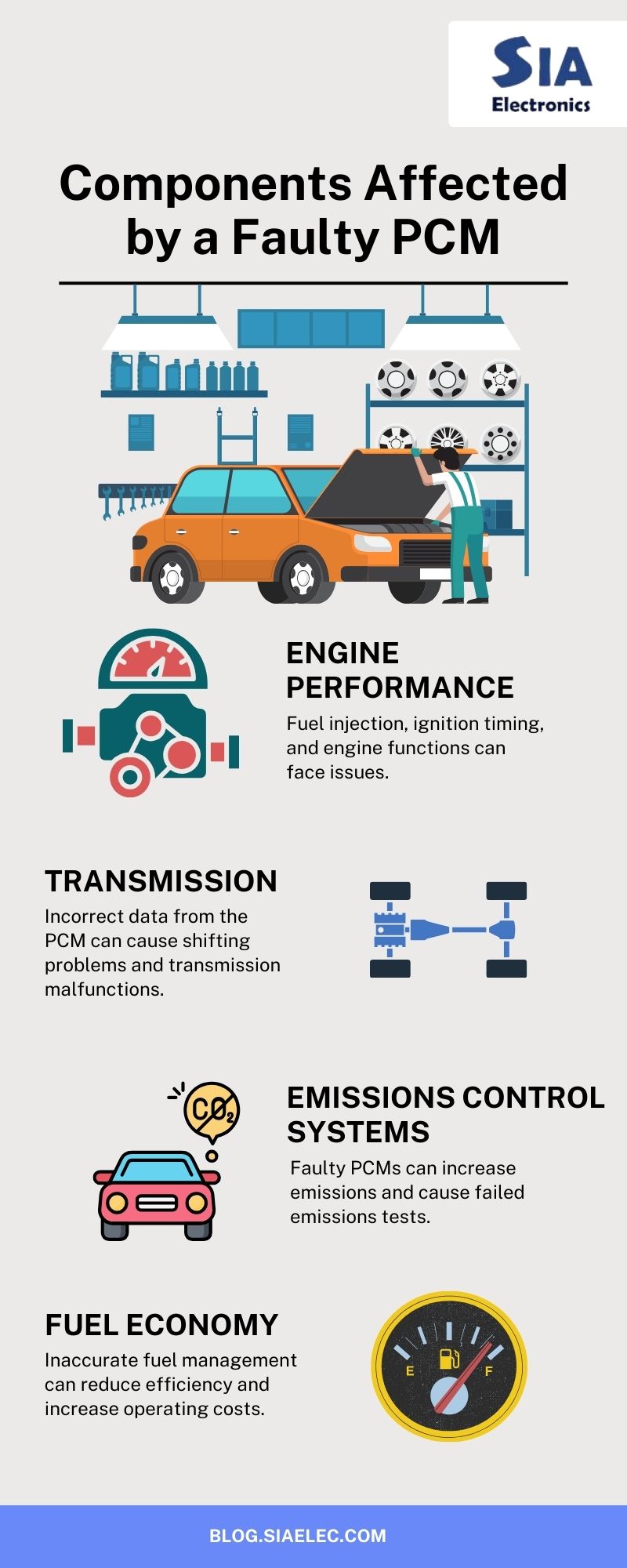Table of Contents
Introduction
When it comes to vehicle safety and performance, the Powertrain Control Module (PCM) plays a crucial role. Over time, manufacturers may identify issues with these modules, leading to recalls and reprogramming requirements. In this blog, we will delve into the details of Powertrain Control Module Programming recalls, the benefits of reprogramming, how to determine if your vehicle is affected, and whether you can handle the reprogramming yourself or need a professional. We will also discuss other components that might be affected by a faulty PCM.
What is a Powertrain Control Module (PCM) Recall?
A Powertrain Control Module (PCM) recall is issued by vehicle manufacturers when a defect or issue is identified in the PCM that could affect the vehicle's performance, emissions, or safety. The PCM is a critical component that manages the engine and transmission functions. When a recall is announced, owners of affected vehicles are typically notified and advised to have their PCM reprogrammed or replaced to correct the issue.
Benefits of PCM Recall Reprogramming
Reprogramming the PCM as part of a recall offers several benefits:
- Improved Performance: Addressing issues in the PCM can enhance engine performance, fuel efficiency, and overall drivability.
- Increased Safety: Fixing defects helps prevent potential safety hazards, reducing the risk of accidents.
- Compliance with Emissions Standards: Reprogramming ensures that the vehicle meets regulatory emissions standards, avoiding potential fines and environmental harm.
- Extended Vehicle Lifespan: Properly functioning PCMs contribute to the longevity of the vehicle by preventing undue wear and tear on the engine and transmission.
Identifying if Your Vehicle is Affected by a PCM Recall
To determine if your vehicle is subject to a PCM recall:
- Check Manufacturer Notifications: Look for recall notices from your vehicle manufacturer via mail, email, or phone.
- Visit the NHTSA Website: The National Highway Traffic Safety Administration (NHTSA) website allows you to search for recalls using your vehicle identification number (VIN).
- Contact Your Dealer: Reach out to your local dealership to inquire about any active recalls for your vehicle.
Professional vs. DIY PCM Reprogramming
While some car enthusiasts may consider reprogramming the PCM themselves, it is generally recommended to seek professional assistance:
- Expertise and Equipment: Professionals have the necessary tools and expertise to reprogram the PCM accurately.
- Warranty Considerations: DIY reprogramming can void warranties, whereas professional services maintain warranty coverage.
- Precision and Safety: Ensuring the reprogramming is done correctly is crucial for vehicle safety and performance, making professional services the safer option.
Other Components Affected by a Faulty PCM
A faulty PCM can impact several other vehicle components:
- Engine Performance: Issues with fuel injection, ignition timing, and other engine functions can arise.
- Transmission: Shifting problems and transmission malfunctions can occur due to incorrect data from the PCM.
- Emissions Control Systems: Faulty PCMs can lead to higher emissions and failed emissions tests.
- Fuel Economy: Inaccurate fuel management can reduce fuel efficiency, increasing operating costs.
Conclusion
Reprogramming the Powertrain Control Module (PCM) is a critical step in addressing recalls and ensuring your vehicle's optimal performance, safety, and compliance with emissions standards. While identifying and addressing a PCM recall can seem daunting, understanding the process and benefits makes it manageable. For the best results, relying on professional services is advisable to ensure the reprogramming is done accurately and safely.
FAQs on
Reprogramming Your Powertrain Control Module : A Step-by-Step Guide
-
1. What triggers a Powertrain Control Module (PCM) recall?
Ans.
A PCM recall is typically triggered when manufacturers or regulatory bodies identify a defect or issue in the PCM that can affect vehicle performance, safety, or emissions compliance. These issues are often discovered through internal testing, customer feedback, or routine inspections.
-
2. How long does the PCM reprogramming process take?
Ans.
The time required for PCM reprogramming can vary depending on the vehicle and the specific recall. On average, the process takes about 30 minutes to an hour. However, it is advisable to contact your service provider for a more accurate estimate based on your vehicle's make and model.
-
3. Are there any costs associated with PCM recall reprogramming?
Ans.
Generally, PCM recall reprogramming is performed at no cost to the vehicle owner. The manufacturer covers the costs associated with addressing recall issues, including the reprogramming or replacement of the PCM.
-
4. What should I do if I continue to experience issues after the PCM reprogramming?
Ans.
If you continue to experience issues after PCM reprogramming, it is essential to return to the service provider for further diagnosis. There may be additional underlying issues that need to be addressed. Ensure you keep records of the initial service for reference.
-
5. Can PCM reprogramming affect the vehicle's warranty?
Ans.
PCM reprogramming conducted as part of a recall should not affect your vehicle's warranty. It is performed to address a manufacturer's defect. However, if you attempt to reprogram the PCM yourself or use unauthorized services, it could potentially void the warranty.
-
6. What are the potential signs that my PCM may be faulty and need reprogramming?
Ans.
Signs of a faulty PCM include check engine light activation, engine performance issues (such as stalling or misfiring), poor fuel economy, transmission problems, and failure to pass emissions tests. If you notice any of these symptoms, it is advisable to have your vehicle inspected by a professional.



